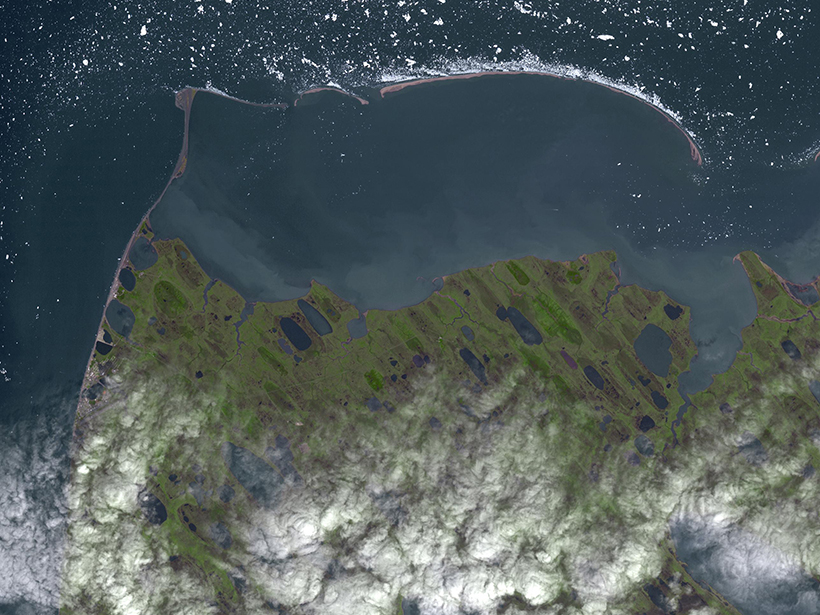Source: Geophysical Research Letters
In the global carbon cycle, the Northern Hemisphere’s vast boreal forests and windswept tundra are important sinks for atmospheric carbon dioxide, a persistent greenhouse gas. Because much of the carbon in these ecosystems is stored in the ground, even a slight change in the rate of soil respiration as the climate warms could significantly alter atmospheric carbon dioxide concentrations. As a result, feedbacks during the long nongrowing season could be as important for controlling future climate as interactions during the growing season. To date, however, the effects of a warming climate on the carbon cycle during the northern latitudes’ long period of dormancy are not well understood.
To investigate these effects, Liu et al. utilized the 40-year record of carbon dioxide concentrations from Point Barrow, Alaska, to calculate the net release of carbon during both autumn (September through November) and winter (December through April). The results show that between 1974 and 2014, global warming has boosted the net release of carbon dioxide during the autumn period, but that this effect has attenuated in the past 17 years. During winter, by contrast, the researchers found no significant temperature effect on carbon release.
After ruling out the effects of fossil fuel emissions and sea-air carbon dioxide exchange, the authors conclude that the most likely cause of the observed deceleration is the weakening response of respiration to warming during the nongrowing season. This finding is due to the recently reported weakening relationship between temperature and ecosystem productivity. Because this response could partially offset the impacts of warming on carbon sequestration occurring during the northern latitudes’ growing season, these results underscore the importance of considering how the carbon cycle varies during the region’s long periods of dormancy. (Geophysical Research Letters, https://doi.org/10.1029/2018GL077447, 2018)
—Terri Cook, Freelance Writer
Citation:
Cook, T. (2018), Autumn warming no longer accelerating carbon loss in the North, Eos, 99, https://doi.org/10.1029/2018EO104461. Published on 21 September 2018.
Text © 2018. The authors. CC BY-NC-ND 3.0
Except where otherwise noted, images are subject to copyright. Any reuse without express permission from the copyright owner is prohibited.

